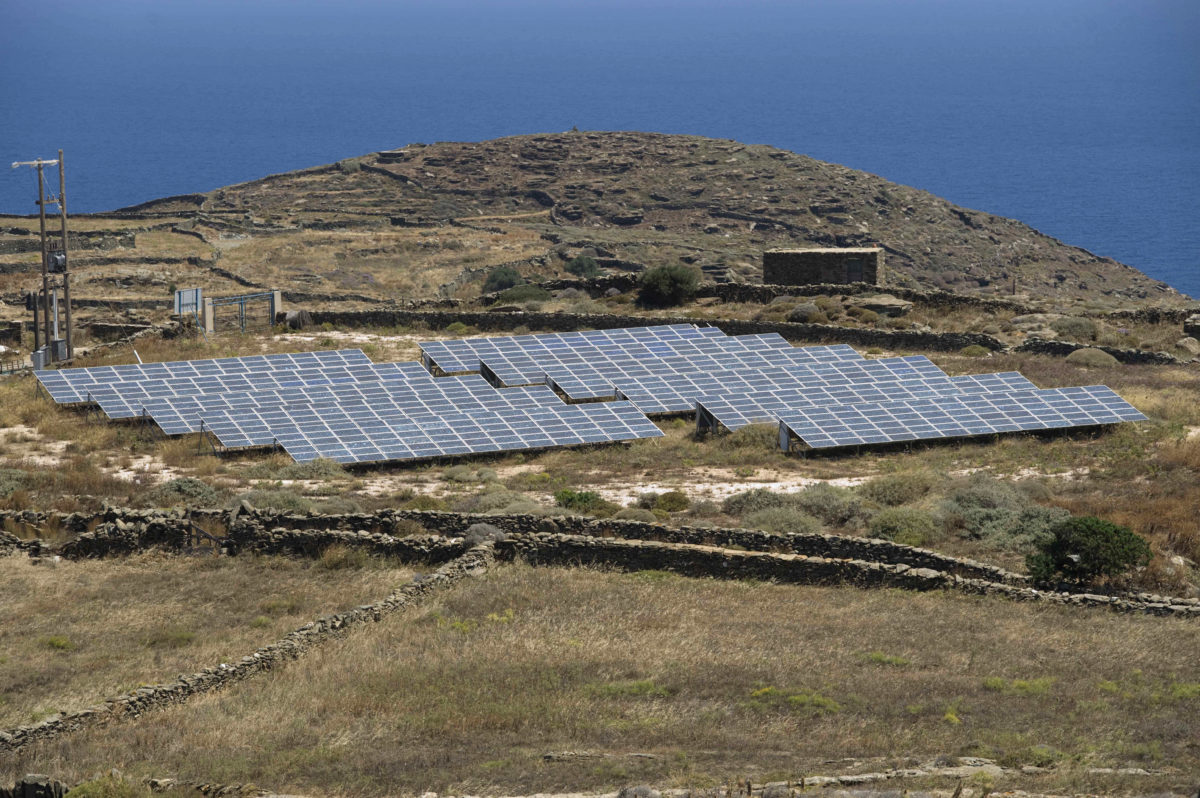The winner in the first of a series of renewable energy auctions that will take place in Greece as part of its renewable energy plan, is the European Union’s policy.
It is the bloc that insisted on EU members’ auctioning renewable energy capacity above 500 KW; and Greece, which adopted the new policy belatedly and rather reluctantly, today bears the fruits.
Monday’s solar PV auction was split in two categories: The first concerned projects larger than 500 KW and up to 1 MW of capacity; and the second, projects larger than 1 MW and up to 20 MW of capacity.
Successful bidding prices in the first category ranged from €75.87 per MWh up to €80 per MWh, with the tender awarding a total of 53.48 MW of PV capacity across 83 projects.
The second auction category reduced the price for the generated power from sun in Greece further, with the lowest successful bid coming in at €62.97 per MWh, and the highest, €71 per MWh. Overall, the second category awarded a total 52.92 MW of new solar PV capacity over eight projects.
There was also a third auction category concerning wind energy projects. Overall, 170.92 MW of new wind power capacity was awarded across seven projects. The lowest successful bid in this category was €68.18 per MWh.
Winning projects
In more detail, the first auction category, comprising PV projects up to 1 MW, was dominated by Greek firm, Egnatia Energia. Egnatia Energia won around 34 MW of capacity across 46 projects, out of a total 53.48 MW awarded.
All but two of Egnatia’s successful bids were awarded a comparatively high tariff of €79 per MWh. The remaining two projects, meanwhile, saw tariffs of €77 and €76 per MWh, respectively.
In the second solar PV tender category, out of a total of eight projects, Germany’s ABO won five, worth around 45 MW of capacity, out of a total 52.92 MW been awarded.
ABO’s involvement is the reason Greece’s tender produced its lower bidding prices. The company can secure financing abroad, with low interest rates, and then invest in Greece.
Specifically, the tariffs for ABO’s winning bids ranged between €62.97 and €62.99 per MWh. The tariffs for the remaining three successful bids, which didn’t involve ABO, came in at €67.06, €69 and €71 per MWh, respectively.
Popular content
The bidding price caps in the tender’s first and second categories were €85 per MWh and €80 per MWh, respectively.
Mixed feelings
Overall, Monday’s solar PV tender generated mixed feelings.
The tender was a success in that it produced lower prices than those seen in the pilot tender in December 2016.
It can also be considered a success when compared to the high feed-in tariff rates being awarded in Greece a few years ago (and which the government then retroactively cut).
However, the tender has failed to attract the stunning prices seen elsewhere around the globe recently. This is not strange given the country has been battered by an economic and political crisis for almost a decade, while the current government came close to leaving the European Union three years ago.
Even today, three years after the so-called Grexit crisis, Greece’s government still restricts the flow of capital.
Red tape
Under these circumstances, Greece has only one way forward now: To ensure red tape is restricted, so investors can quickly gather all the necessary documentation, so they can participate in the next tenders; and attract as many foreign investors as possible, allowing the new tenders to lower the bidding prices even further.
In September, the Greek regulator will announce the details of the next renewable energy tender, which is expected to take place by the end of the year. The required level of participation in the tender, set by the regulator, should remain the same.
The country’s forthcoming auctions should see lower bids than the ones experienced this week, to reflect the level of cost reductions seen elsewhere in the world. This won't be possible via local financing alone.
This content is protected by copyright and may not be reused. If you want to cooperate with us and would like to reuse some of our content, please contact: editors@pv-magazine.com.


By submitting this form you agree to pv magazine using your data for the purposes of publishing your comment.
Your personal data will only be disclosed or otherwise transmitted to third parties for the purposes of spam filtering or if this is necessary for technical maintenance of the website. Any other transfer to third parties will not take place unless this is justified on the basis of applicable data protection regulations or if pv magazine is legally obliged to do so.
You may revoke this consent at any time with effect for the future, in which case your personal data will be deleted immediately. Otherwise, your data will be deleted if pv magazine has processed your request or the purpose of data storage is fulfilled.
Further information on data privacy can be found in our Data Protection Policy.